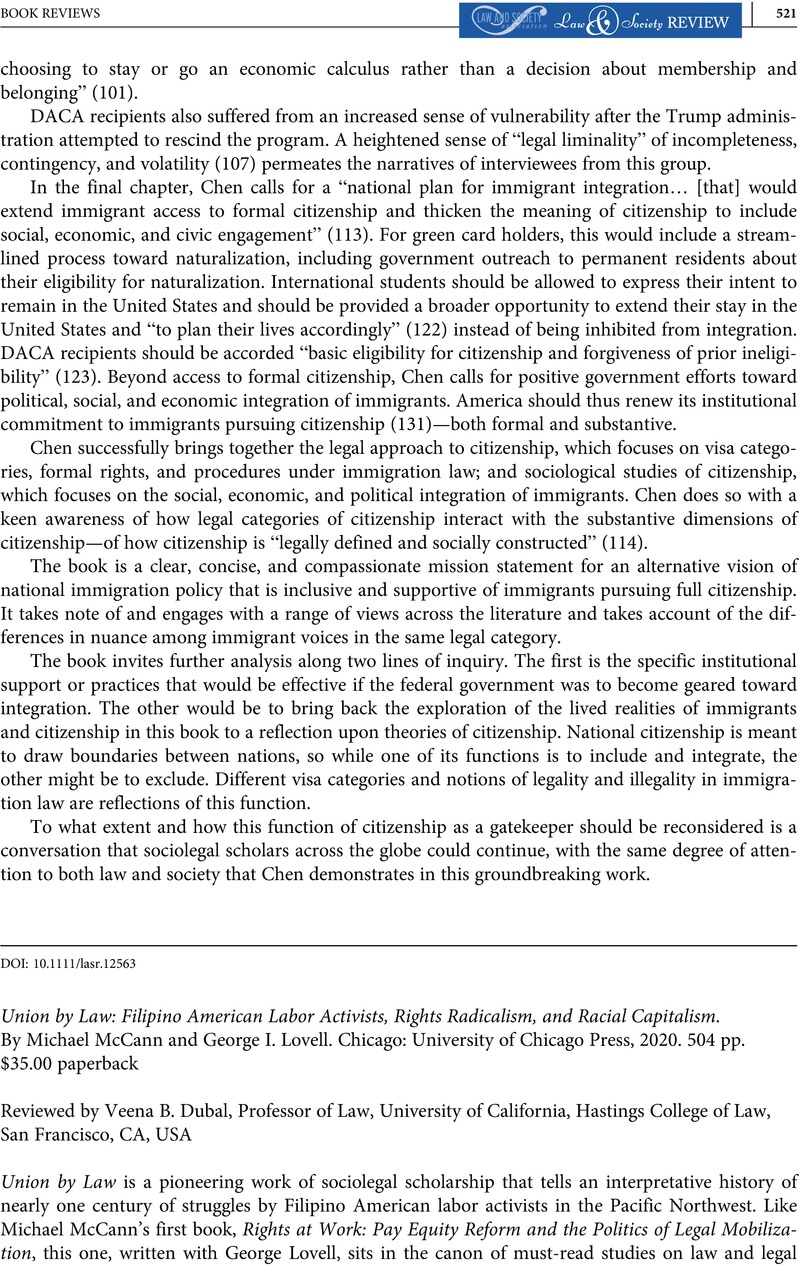No CrossRef data available.
Article contents
Union by Law: Filipino American Labor Activists, Rights Radicalism, and Racial Capitalism. By Michael McCann and George I. Lovell Chicago: University of Chicago Press, 2020. 504 pp. $35.00 paperback
Review products
Published online by Cambridge University Press: 01 January 2024
Abstract

- Type
- Book Reviews
- Information
- Copyright
- © 2021 Law and Society Association.


